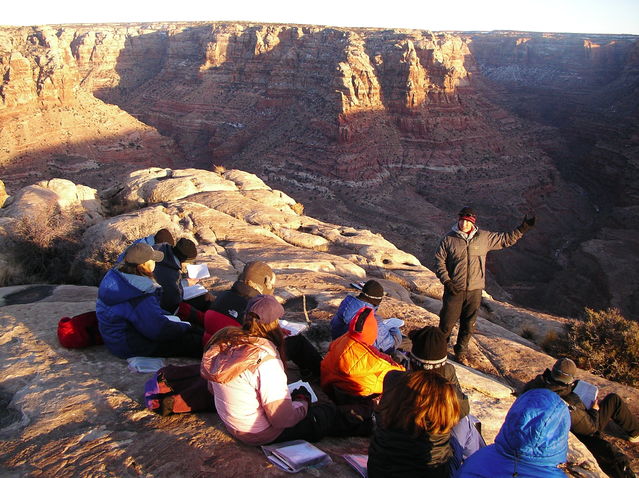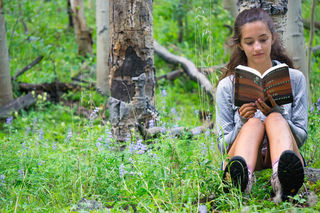Education
The Benefits of Learning Outdoors
Recent research reveals that nature boosts student motivation and competence.
Posted February 9, 2018

Students at High Mountain Institute, based in Leadville, Colorado, do much of their learning on expeditions into the wilderness.
Students learn best when they’re motivated. But how to motivate them is a perennial question. A recent study in Frontiers in Psychology adds to the evidence supporting one answer: Take them outside. Students who participated in an outdoor education program as part of their science curriculum reported significantly more intrinsic motivation to learn and felt more competent. “The kids are more affected by the teaching in the outdoors than they are in the indoors,” says educational psychologist Ulrich Dettweiler at the University of Stavanger in Norway and lead author of the study.
For the study, Dettweiler and German colleagues from the Technical University of Munich and Johannes Gutenberg University investigated three ingredients that students are thought to require for learning: competence, autonomy, and relatedness (or connection). (According to self-determination theory, these are the basic psychological needs that motivate learning.) Nearly 300 students attended a one-week residential science course in Germany that included a two-day research expedition. Before and after the course, the students completed questionnaires assessing how well the experience satisfied those three basic needs. Did they feel competent and like they were able to actually do things well? Did they feel autonomous, as if they were mastering their own ideas and making their own decisions? And finally, what were their relationships like with their peers and with their teachers?
“In our study, competence was by far the most important of those three,” says Dettweiler. “It does most of the work in augmenting motivational behavior from indoors to outdoors. But all three are better satisfied in the outdoors than the indoors.” (It should be noted that relatedness ratings improved with teachers, but not with peers outdoors.)

The study also generated qualitative data by observing the students and interviewing them after the course. When asked to write down what pops into their minds when they think of teaching in both contexts, Dettweiler says there was more coherence in the answers about outdoor learning compared to lists of unconnected subject topics that were generated by indoor learning. The students also generated more detailed knowledge, such as the botanical names of plants, when writing about their time outdoors.
Stress levels also appear to be affected by time outdoors. In a related study published last year in the International Journal of Environmental Research and Public Health, Dettweiler and some of the same colleagues measured daily levels of the stress hormone cortisol in two groups of children. They were interested in the pattern of cortisol levels across a regular day.
In a normal, healthy person, cortisol levels spike significantly upon waking up in the morning, then drop until about midday and plateau through the afternoon. At about four or five p.m., cortisol levels drop again until you go to bed. This study measured cortisol in students’ saliva three times a day. The intervention group of 37 students spent one day each week learning in a nearby forest and the rest of their time in school as usual. A control group of 11 studied indoors only. The outdoor group showed a normal, healthy pattern in their cortisol levels, but the children who stayed indoors did not show the expected drop in cortisol in the afternoon. “They keep the [higher] stress level during the whole day,” Dettweiler says, “which one could argue is not the best thing to do to a child.”
Dettweiler is also studying what's happening in children's brains while they're outdoors, which he suspects relates to the results in cortisol. But that work is still underway and not yet published.
Dettweiler believes the message of his work and other similar studies is clear. “Take kids out once in a while.” He knows that not every student can participate in programs like the one in the study, but he says they don’t have to as long as there is a consistent pattern of outdoor learning. “It doesn’t need to be the whole day. It’s enough to do it half an hour on a regular basis. It will help you to catch the kids' interest in learning.”
Copyright: Lydia Denworth 2018
Photos courtesy: High Mountain Institute
References


